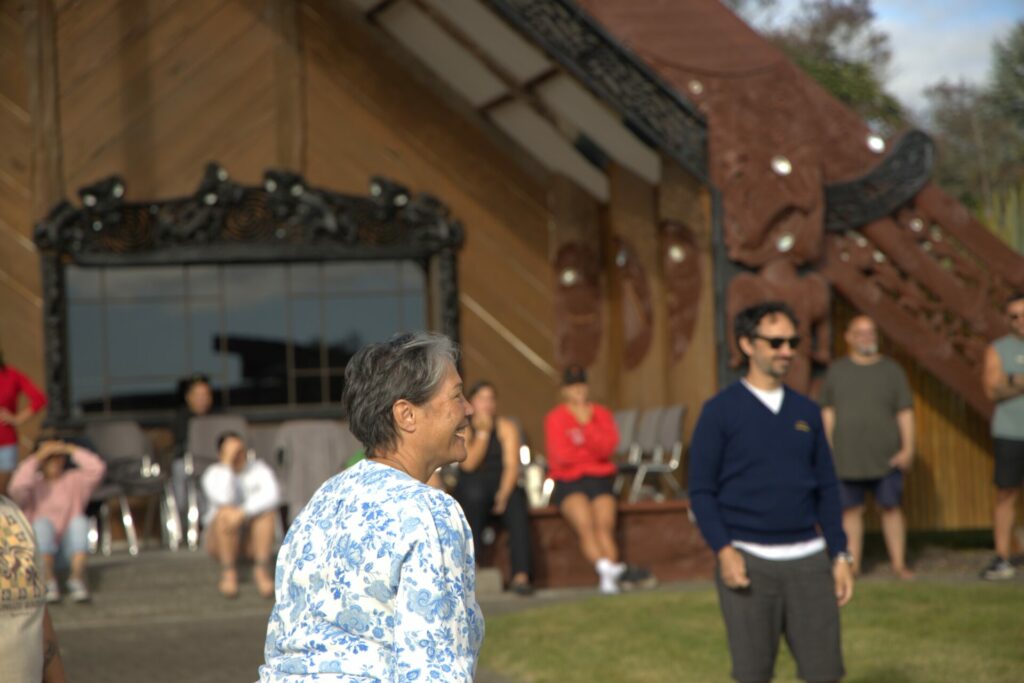Merekingi Harvey-Brewster | 3 March, 2024




Decolonisation was the kaupapa last weekend at Tangatarua Marae in Rotorua. 55 people of differing age and ethnicity travelled from across the motu, to attend the wānanga facilitated by Te Ururoa Flavell. The focus of the wānanga was to delve into the history of Aotearoa, and bring about a deeper understanding on the current state of Māori.
Pōhiri began at 5pm on Friday the 1st of March, after which everyone was familiarised with the agenda. Majority of the first night was spent doing whakawhanaungatanga, before moving onto kōrero that provided deeper context around the two versions of the Treaty.
Day two’s activity helped attendees to imagine the mamae our tūpuna felt during the process of colonisation, the effects of which are sadly still visible today. One attendee shared that the final line from the role-play activity was highly impactful for her, due to its relevance to the current political state of Aotearoa.
“Māori have become collateral damage by policies and laws that are not designed with them in mind, and this will continue to happen if nothing changes”.
With the recent abolishment of Te Aka Whai Ora, this final line was a cool reminder of the importance of banding together and being strategic to ensure change.
Later that evening, we were lucky to have guest speaker Kirikowhai Mikaere share her mātauranga around Māori data sovereignty. She spoke about understanding the importance of having mana over our data and being clear about our why. One of the biggest take-aways from her kōrero was that as Māori, our data and information must always be built on trust, as that is our currency.
Hone Hurihanganui was our guest speaker for day three and gave an inspiring kōrero about the unconscious bias that sits in institutions, and the impact this can have on whānau. He ended his kōrero by providing a formula for an ‘intelligent response to racism’, which was a highlight for many attendees.
At the end of day three, any thoughts and kōrero were welcomed during a feedback session. Many attendees shared that while most of the content covered throughout the wānanga was heavy, they were able to transform from mamae to empowerment, and felt fueled to effect change in their own lives.
Merekingi Harvey-Brewster | 3 March, 2024



